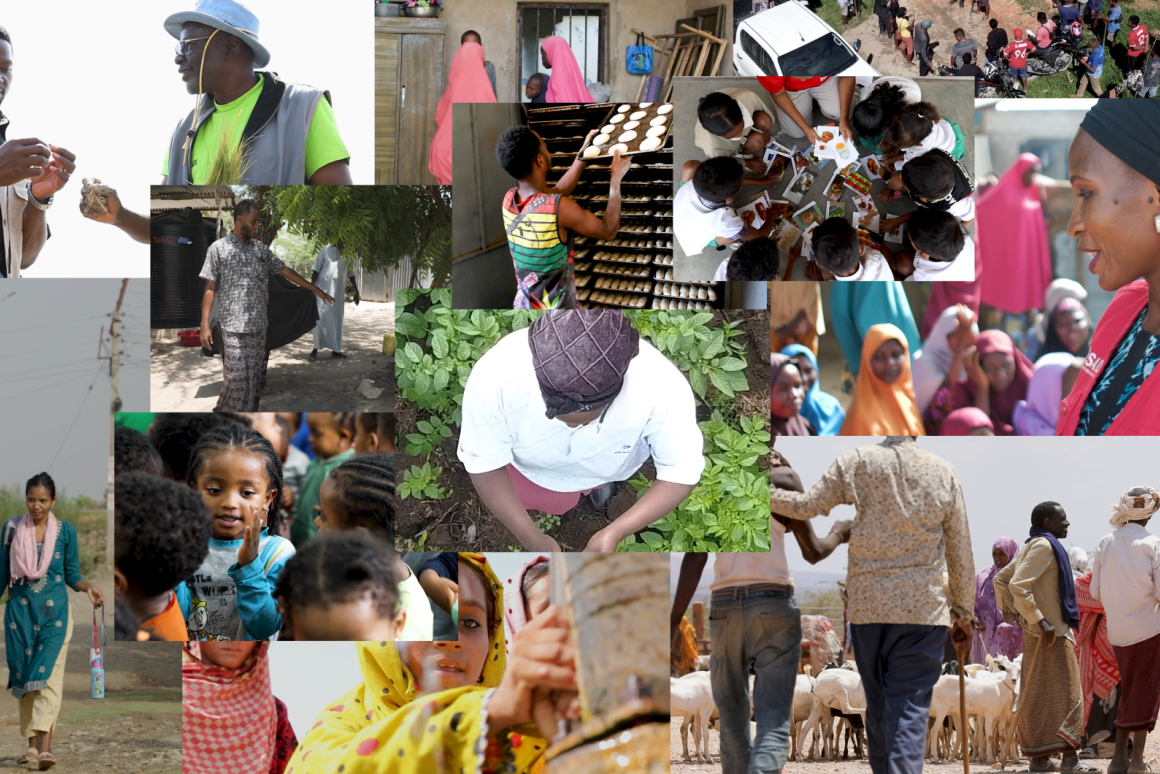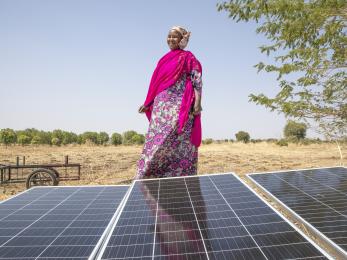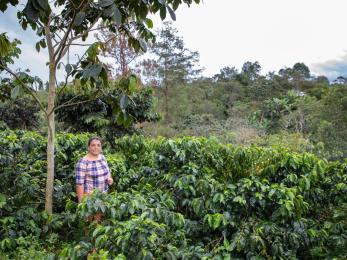Global crises are on the rise. Here’s what President Biden can do.
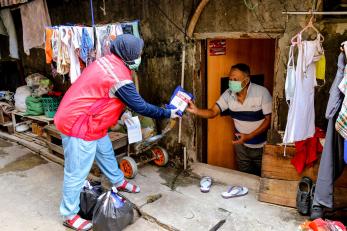
Over the course of the last year, our global teams have seen firsthand how COVID‑19, conflict and climate change are intensifying existing challenges in vulnerable communities. We know that we can create opportunities even in the midst of the toughest challenges. It’s when we unite behind bold solutions that a better world is possible.
Mercy Corps is encouraged to see that President Biden and Vice President Harris have committed to taking swift action to address these major crises. The decisions and efforts of their administration can help hundreds of millions of people survive, recover and rebuild.
Here are our recommendations on how leaders in Washington can help shape a future we can all share:
Build a global recovery from the COVID‑19 pandemic
As COVID‑19 vaccines become available, it’s critical that we don’t lose sight of the very nature of a pandemic — that this deadly and evolving disease is a worldwide crisis. To treat it, we need leadership to spearhead effective collaboration across borders and between organisations for a solution trusted worldwide. The work to protect everyone begins by ensuring the health and safety of the people most threatened by this virus and its variants.
Beyond its devastating effects on global health, the pandemic is also worsening food insecurity, unemployment, economic and gender inequality and conflict. If we don’t act fast, we risk losing decades of progress.
Here are the actions we’re asking the Biden-Harris administration to take, which would help the whole world recover from the pandemic:
- Support equitable vaccine delivery to everyone, everywhere.
- Leverage the government and all its partners to launch initiatives with deep and inclusive local participation throughout the vaccine rollout.
- Build trust in the vaccines — and the people providing them.
- Provide additional funding to help address skyrocketing food insecurity, vanishing livelihoods and rising conflict resulting from the pandemic.
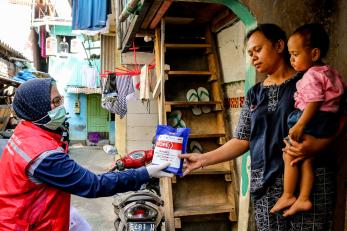
These recommendations are rooted in our own efforts to help protect the communities we serve. Whether delivering health information and clean water to refugee families in Syria, providing emergency cash assistance to a street vendor unable to work during a lockdown in Colombia, or using mobile phones and a radio programme to dispel COVID‑19 misinformation in Nigeria, we are working with local communities to support an equitable global recovery.
Go all in on preventing conflict and violent extremism
Nearly 80 million people around the world are displaced from their homes by violence. It’s a staggering number that amounts to roughly 1% of all the people on our planet. To treat the underlying causes of conflict, we urged lawmakers in the U.S. to pass the Global Fragility Act — and in December 2019, they did. But the pandemic swept across vulnerable communities months later, which intensified conflict dynamics by fraying community trust, spreading disinformation and expanding the influence of violent extremist organisations.
The Global Fragility Act provides a strategy to take on these challenges, but it needs funding and the support of the U.S. diplomatic, development and defense agencies. To achieve the full potential of this innovative new law, the Biden-Harris administration must prioritise collaboration across agencies, consult with experts and community members and create a path forward based on what’s proven to work.
To build a safer world for people living in communities on the brink of violent conflict, the Biden-Harris administration can take these actions:
- Finalise and release a strategy that emphasizes how corruption, security sector abuse and violence against civilians all work to worsen state fragility. In addition, outline the assistance programmes and diplomatic actions the U.S. government will support through the strategy.
- Establish leadership that fosters strong collaboration across the U.S. government to improve the effectiveness of peacebuilding assistance and diplomacy.
- Grow global support for peacebuilding by seeking funding contributions from government, private sector and philanthropic partners.
- Ensure that U.S. government programmes empower local communities by consulting with experts and community members and by prioritising research and learning.
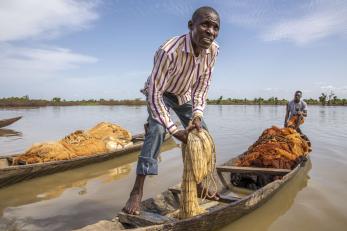
Strengthen U.S. commitment to climate adaptation
It is the world’s most vulnerable communities that are hit hardest by the climate crisis. Like the COVID‑19 pandemic, while climate change is a massive challenge on its own, it’s also a threat multiplier. Poverty, hunger and poor health all are made worse by unpredictable weather patterns and in the aftermath of increasingly frequent and extreme weather events like drought, flooding and hurricanes.
While the Biden-Harris administration made strong commitments to address climate change, support for communities who are already experiencing the effects of the changing climate is essential.
The Biden-Harris administration can strengthen global communities against rising climate challenges by doing the following:
- Double U.S. financial support for climate adaptation — especially for fragile and climate-vulnerable countries.
- Ensure that all foreign aid programmes recognise the growing risks of climate change and make plans to address those risks.
- Use new and innovative solutions, like connecting farmers to weather information and financial tools with mobile technology, to help communities on the frontlines of climate change build their resilience.
- Invest in a sustainable future by leveraging the government’s $30 billion portfolio to reflect and support the long-term U.S. climate goals.
- Ensure that initiatives with multiple partners use their funds to reach the most climate-vulnerable countries.
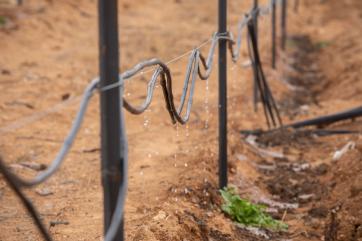
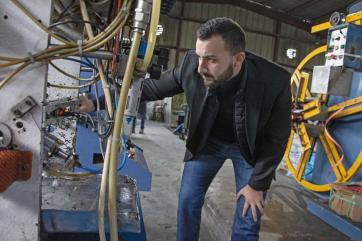
All over the world, people grappling with climate change need strong commitments from the international community to ensure that they have the tools needed to adapt to the rapidly changing climate. While our teams are working right now with communities to recover from disasters and to build up their resilience to face tomorrow’s intensifying hurricanes, droughts and floods, there’s still more work to be done.
Let’s get to work building a better world
While the Biden-Harris administration has made commitments to take action on these fronts, more work will need to be done. Communities worldwide need a sustained effort that can support and empower them as they overcome crisis. That’s why we’re urging leaders in Washington to partner with humanitarians and communities in order to protect the people most at risk from the growing challenges of COVID‑19, conflict and climate change.
If we work together, we can develop long-term solutions that will drive meaningful change and build a brighter future for us all.
